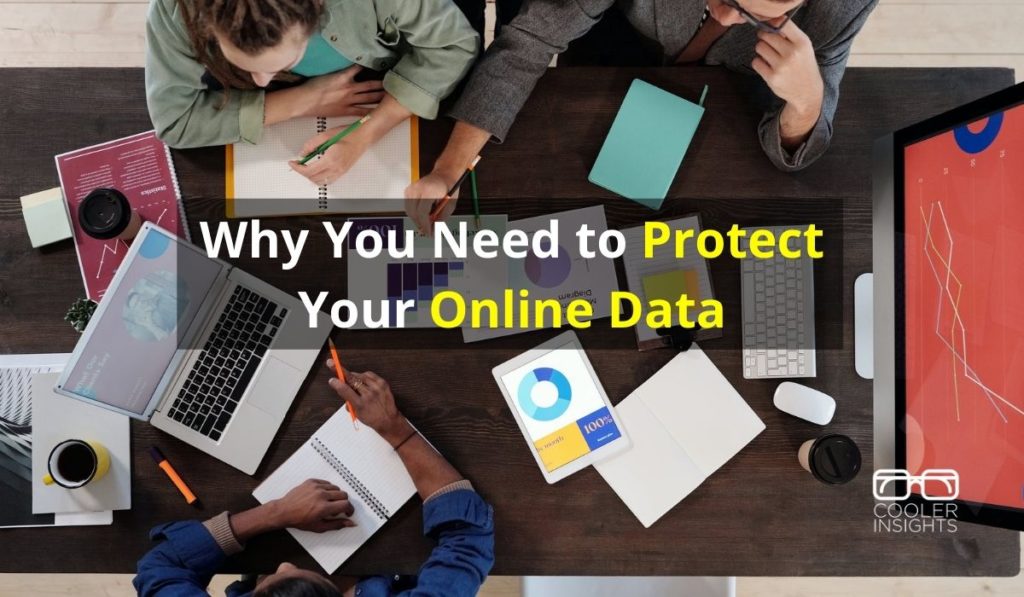
To launch an effective marketing campaign, it’s essential to have a reputable data source to personalise messaging and accurately target your customers. But how do you go about protecting your data so it doesn’t end up in the hands of hackers?
In an increasingly tech-savvy world, every digital marketer should consider the possibility of a data breach. Whether you’re a designer looking after an entire website for a client, or a freelancer managing multiple social media accounts, there’s always multiple risks and dangers in the digital world.
Cybersecurity is imperative in protecting your client and customer data. Marketers like you must ensure that you are aware of the potential threats online, and ways to prevent costly and time-consuming data breaches.
Unfortunately, if you fail to follow data protection laws and find yourself under attack, you could be held liable for a compensation of data breach protection claim made against you.
Loss of your corporate and even personal reputation and financial strain are sure to follow.
In this article, we will discuss how best to protect your data online, and the advantages of using trusted data sources for marketing collateral. We’ll also explore which free or affordable tools you should use to help you be extra cyber vigilant.
How to Protect Your Data as a Digital Marketer
Invest in VPN Protection & Anti Malware Software
The most important factor to avoid cybersecurity issues is to use a secure and reliable VPN (Virtual Private Network). By using a VPN, all your internet traffic travels through an encrypted tunnel, securing it away from the prying eyes of hackers.
The same rules apply to your antivirus software. For personal use you should, at the very least, have free antivirus protection. For businesses, however, it’s well worth investing in something premium as you’re not only responsible for your own data, but also your client’s.
Remember, if you’re unsure about the reliability of your VPN or antimalware software, make sure you regularly check out online reviews on reputable websites such as TechRadar or VPNRanks.
CMSs Are Not as Safe as You Think
Content Management Systems (CMSs) are constantly under threat from hackers. WordPress is the most popular way of creating a website, with a 65.2% market share as of August 2021, but it’s also one of the most susceptible to attacks.
With most websites depending on millions of lines of code and multiple individual developers, we can assume there are vulnerabilities in every operating system, web server, CMS and website.

Performing regular maintenance of your client’s website is key to avoiding a data breach. If you’re not responsible for maintaining your client’s web server, then ask the website providers for details about their security processes to ensure that they are on top of it.
Use Your Own Data Where Possible
To avoid breaching GDPR laws, it’s always best to use your own data to promote your brand and target your audiences. Legally, your client should already have an up-to-date customer database which will make your life a whole lot easier when you start reaching out to existing consumers.
Once you’ve got this data, analyse every inch of it and break down the demographics where possible, to target different audiences with different tailored messaging.
From e-marketing to infographics and case studies, there are a plethora of ways to target your audiences. With the right marketing collateral, you’ll be able to generate leads, promote new services, entice customers, and make your client’s brand more publicly known.
If you are looking to launch a marketing campaign using someone else’s data, only take data from trusted, accredited sources, and those that are updated and cleansed regularly, such as the U.S. Census Bureau.
Regularly Reset Passwords
Yes, it’s the oldest tip in the handbook, but one that must be mentioned. It’s all very well and good investing in expensive, high-tech software, but weak, stolen, or reused passwords are the #1 cause of data breaches.
Ultimately, the harder it is to crack your password, the less likely you are to be hacked.
Many digital marketers preach this to their clients but don’t take their own advice. Using a mixture of capitals, numbers, and symbols will strengthen your password. Do also make sure that you change it regularly each month, even if it’s only a digit different.
If that sounds like too strenuous of a task, download password manager software such as Dashlane. Password managers will automatically create, save and auto-fill your passwords, as well as pinpoint password hygiene problems for you to fix.
Some Handy Tools to Help You Protect Your Data
Sometimes the internet can be a dangerous place to scour, but often it can offer a multitude of helpful and affordable tools. As well as the tools mentioned previously, we’ve listed a few below to help you on your way:
Have I Been Pwned
Have I Been Pwned is an invaluable tool that allows users to type in an email address or phone number to see if their contact details have been compromised. The website lists the possible data breaches a user has been involved in and suggests the following steps to take to improve security.
OneTrust
OneTrust offers a free Cookie Compliance tool for marketers who have their own domain or are managing a client’s website. This tool scans website users and looks for cookies and tracking technologies to block potential hackers.
Built With
Built With is a website that tells you exactly what software is used on a site. Educate yourself on the software and keep up to date with the latest software package to avoid vulnerabilities.

Wiredsmart by Pexels
Don’t Become Complacent
In this article, we’ve briefly discussed how to be cyber vigilant, but if you’re a digital marketer you should now be thinking about your next steps. When using technology every day in your job, the chances that you’ll come across a breach at some point in your career are dramatically increased.
If you’re not feeling as confident as you’d like to be when talking to clients about data protection or using anti-malware software, research cybersecurity training and you’ll find several certified training courses that you can enroll for.
Good luck!

Thanks for the post.
Thanks for sharing this important post.
Hi Walter,
It’s great information! As belonging to the digital marketing industry, I understand the risks or threats of using the Internet. Got to know the helpful tools & tips to follow.